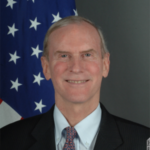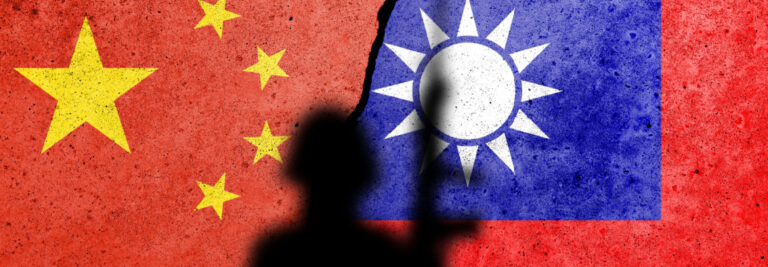Donald Trump’s election as the next American President is naturally stimulating much discussion about his policy in general. That he is coming into arguably the most important job in the world with a remarkable lack of experience makes it even more difficult for analysts to anticipate what his administration will do. That goes in spades for foreign policy, where his experience abroad is primarily as a developer and businessman.
Trump follows eight years of President Obama, a man who came to the job with little foreign policy experience but an international background. After assuming the presidency, Obama surrounded himself with experts and proved a quick study. Looking back to 1981, Ronald Reagan also entered the White House with little foreign policy background, but quickly recruited good advisors (George Shultz, his Secretary of State from 1982 to 1988, was one of the best bosses I ever worked for in my 33 years in the Foreign Service). Bill Clinton and George W. Bush, similarly lacked much background in foreign affairs, but grew quickly on the job.
Judging from the campaign, Mr. Trump has a steep learning curve ahead of him. As a candidate, he has threatened a trade war with China and suggested our Korean and Japanese allies need to assume greater responsibility for their own security, or at least pay a heftier share of the cost of their alliance with America. Perhaps most alarming was a proposal that Seoul and Tokyo acquire nuclear weapons.
Thankfully president-elect Trump now has two months to study up, and draw a circle of advisors around him to assist in crafting policies in an increasingly troubled global environment. A key question will be those he chooses as his Secretaries of State and Defense, his intelligence chief and National Security Advisor (retired General Flynn has already been named to this post). One would hope he reaches out to people with relevant background. John Bolton, whose name has been mentioned as possible Secretary of State, is an old friend of Taiwan’s, and could be expected to pursue close unofficial ties with the island if appointed to the top diplomatic job in President Trump’s cabinet. The views on Taiwan of other possible choices, from Rudy Giuliani and Bob Corker to Mitt Romney, are less clear.
Mr. Trump inherits a focus on the Asia-Pacific by his predecessor that was encapsulated in President Obama’s “Asia Pivot” of the past six years. The principle behind this policy was that the US needed to pay greater attention to the fastest growing economic region in the world, and pull away from the previous 12 years’ focus on the Middle East. Of course that muddied the choice, as no modern American leader can ignore instability in the Middle East, given our energy ties and support for Israel. Still, Obama’s launching of the pivot, with considerable early support from then Secretary of State Clinton, was generally welcomed in the region.
The pivot included economic, military and political elements, and served as much as a reaffirmation of the robust, post-World War II American presence in the region as anything dramatically new. It was viewed in no small part as a response to China’s dramatic rise of the previous 30 years, and addressed concerns by many of our traditional friends in the region over the revitalized Middle Kingdom.
Now we face the transfer of power in two months to a new President, whose party will enjoy nearly complete control over Washington’s political heights. This will include Republican majorities in both houses of Congress, a sympathetic Supreme Court (once he fills the Scalia vacancy), and a dispirited opposition party. So what can we expect from this political outsider, about to be thrust into the single most important job there is? And what does it mean for Taiwan?
As Mr. Trump prepares to take office on January 20, 2017, some of his more incendiary policy pronouncements during the campaign have unsettled allies both in Europe and Asia. He has promised to apply steep tariffs on Chinese goods, which he claims are benefiting from an artificially devalued RMB. Most financial analysts dismiss this claim, pointing to years of controlled weakening of the currency by the Beijing government. The President elect has not said much about the rest of the relationship, or Taiwan, in his campaign remarks.
But based upon over 40 years of engagement with China, and a continuing strong commitment by every US President during that period to stand with Taiwan in the face of any threat from the mainland, I seriously doubt the basic thrust of US policy will change under a President Trump. Congress has played a leading role in all of this, and the Taiwan caucus within the Congress has been an active voice supporting close ties with the island nation.
While China’s rise is the marquee story of the past 30 years, Taiwan’s simultaneous emergence as a high-tech economy and a vibrant young democracy is equally impressive. Fears since the 1980’s that the US might abandon the island in its new focus on Sino-American relations have not been borne out. In fact, American pledges to support and maintain the security and prosperity of Taiwan have become strongly bipartisan, with solid support in the Congress as well as in the Executive branch of government.
Recommendations for the next administration:
- An early reaffirmation of the US commitment to the three joint communiqués of 1972, 1978 and 1982, and to the “one China policy;”
- An insistence that cross-Strait differences be addressed solely by peaceful means;
- Maintain the determination of the United States, under the 1979 Taiwan Relations Act (TRA), to continue providing defensive weapons to Taiwan. The volume of such sales has reached several billion USD in recent years, though Taiwan’s wish-list for submarines, cutting edge fighter planes, and other items has been turned aside by US decision-makers. Future focus should be placed on anti-missile defense and enhanced command and control capabilities. An early approval of additional weapons sales would bolster confidence in Taiwan as it continues to face a serious threat from across the Taiwan Strait.
- Just as important as weapons sales has been the maintenance of a robust US military presence in the western Pacific Ocean, aimed at defending our friends and allies from any threat, be it from North Korea, China or other parties. I know the Pacific Command, with its headquarters in Hawaii, takes this mission very seriously.
- Mr. Trump has spoken of increased defense spending under his administration. This would reassure our friends and allies in the Far East of our determination to continue to maintain our ability to project power in that vital region.
- I would encourage the incoming President, Secretary of State, Secretary of Defense and National Security Advisor to reinforce this message to both friends and foes in their public statements as they prepare to assume office.
- Befitting the close trade and investment relationship that we enjoy with Taiwan, I recommend the new administration send a cabinet level official to Taipei to review our bilateral economic relationship. The new USTR head, Secretary of Commerce, or Secretary of Agriculture would make the best sense.
- We should also employ existing mechanisms with the Trade and Investment Agreement (TIFA) to keep the dialogue going on the range of bilateral trade issues of mutual concern.
Taiwan’s leaders have been quite adept in continuing to cultivate a range of friends in American policy, legislative and public circles. The success of Taiwan’s emerging democratic system over the past 30 years has reinforced traditional US attachments to the island and its 23 million citizens. President Tsai Ing-wen, who studied in the US, has continued that tradition. She should be treated with dignity when she transits the US, and can count on robust support from friends within the administration, the Congress, and the states.
The large Taiwanese American community in the US buttresses those ties. Taiwan is the source of tens of thousands of students enrolled in the best American universities. Those that choose to stay and pursue American citizenship further strengthen the close people-to-people relations that underpin our bilateral ties.
There is no contradiction between our pursuit of constructive relations with the PRC and our lasting friendship with the people of Taiwan. Many of our friends around Asia, particularly in Japan, have welcomed America’s strong but unofficial links to Taiwan and the guarantees of continued security and prosperity for Taiwan that come with these historic ties. Moving into a Trump Administration in early 2017, I remain confident in the continued vitality of America’s ties—and its commitments—to Taiwan and its citizens.




